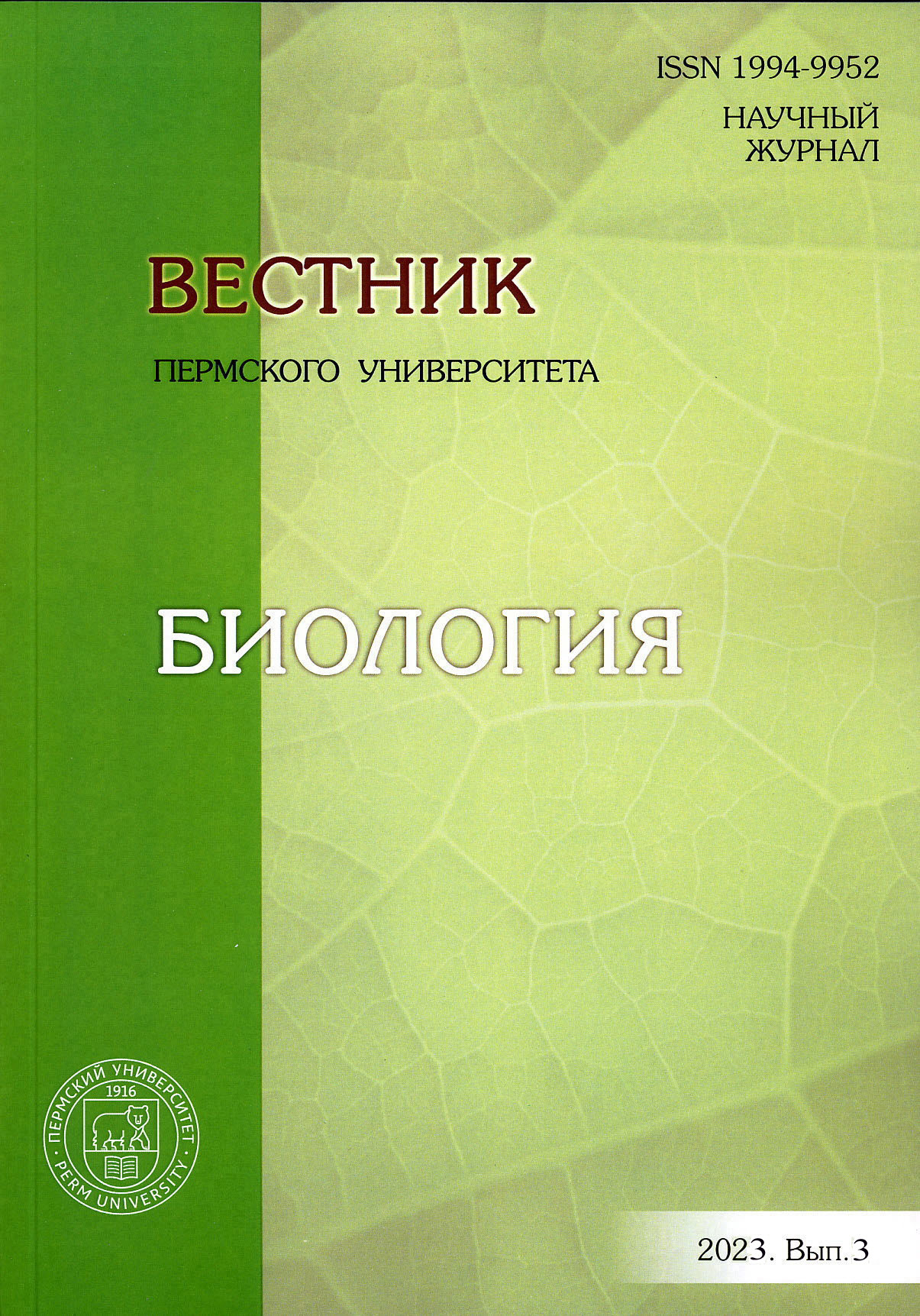Особенности деструкции дизельного топлива штаммом Rhodococcus sp. NDT23 в условиях повышенной солености
##plugins.themes.bootstrap3.article.main##
Аннотация
##plugins.themes.bootstrap3.article.details##
Лицензионный договор на право использования научного произведения в научных журналах, учредителем которых является Пермский государственный национальный исследовательский университет
Текст Договора размещен на сайте Пермского государственного национального исследовательского университета http://www.psu.ru/, а также его можно получить по электронной почте в «Отделе научных периодических и продолжающихся изданий ПГНИУ»: YakshnaN@psu.ru или в редакциях научных журналов ПГНИУ.
Библиографические ссылки
Методы общей бактериологии: пер. с англ. / под ред. Ф. Герхардта с соавт. М.: Мир, 1983. Т. 1–3.
Нетрусов А.И. Практикум по микробиологии. М.: Академия, 2005. 608 с.
Рубцова Е.В., Куюкина М.С., Ившина И.Б. Влияние условий культивирования на адгезивную ак-тивность родококков к н-гексадекану // Прикладная биохимия и микробиология. 2012. Т. 48, № 5. С. 501‒509.
Abatenh E. et al. Application of microorganisms in bioremediation-review // J. Env. Microbiol. 2017. Vol. 1(1). P. 2–9.
Abed R.M.M., Al-Kharusi S., Al-Hinai M. Effect of biostimulation, temperature and salinity on respiration activities and bacterial community composition in an oil polluted desert soil // Int. Biodeter. Biodegr. 2015. Vol. 98. P. 43–52.
Bredholt H. et al. Hydrophobicity development, alkane oxidation, and crude-oil emulsification in a Rho-dococcus species // Can. J. Microbiol. 2002. Vol. 48(2). P. 295–304.
Brzeszcz J., Kaszycki P. Aerobic bacteria degrading both n-alkanes and aromatic hydrocarbons: an un-dervalued strategy for metabolic diversity and flexibility // Biodegrad. 2018. Vol. 29(4). P. 359–407.
Cao Y. et al. Microbial eco-physiological strategies for salinity-mediated crude oil biodegradation // Sci. Total. Environ. 2020. Vol. 727. P. 1–7.
de Carvalho C.C.C.R. Adaptation of Rhodococcus erythropolis cells for growth and bioremediation under extreme conditions // Res. Microbiol. 2012. Vol. 163. P. 125–136.
de Carvalho C.C.C.R. et al. Adaptation of Rhodococcus erythropolis cells to high concentrations of tol-uene // Appl. Microbiol. Biotechnol. 2007. Vol. 76. P. 1423–1430.
Edbeib M.F., Wahab R.A., Huyop F. Halophiles: biology, adaptation, and their role in decontamination of hypersaline environments // World J. Microbiol. Biotechnol. 2016. Vol. 32(8). P. 1–23.
Gharibzahedi S.M.T., Razavi S.H., Mousavi M. Potential applications and emerging trends of species of the genus Dietzia: a review // Ann. Microbiol. 2014. Vol. 64. P. 421–429.
Hart D.J., Vreeland R.H. Changes in the hydrophobic-hydrophilic cell surface character of Halomonas elongata in response to NaCl // J. Bacteriol. 1988. Vol. 170. P. 132–135.
Hvidsten I. et al. Fatty acids in bacterium Dietzia sp: grown on simple and complex hydrocarbons de-termined as FAME by GC-MS // Chem. Phys. Lipids. 2015. Vol. 190. P. 15–26.
Khalid F.E. et al. Bioremediation of diesel contaminated marine water by bacteria: a review and biblio-metric analysis // J. Mar. Sci. Eng. 2021. Vol. 9(2). P. 1–19.
Longang A., Buck C., Kirkwood K.M. Halotolerance and effect of salt on hydrophobicity in hydrocar-bon-degrading bacteria // Environ. Technol. 2016. Vol. 37(9). P. 1133–1140.
Maneerat S., Dikit P. Characterization of cell-associated bioemulsifier from Myroides sp. SM1, a marine bacterium // Songklanakarin J. Sci. Technol. 2007. Vol. 29(3). P. 769–779.
Rosenberg M. Bacterial adherence to hydrocarbons: a useful technique for studying cell surface hydro-phobicity // FEMS Microbiol. Lett. 1984. Vol. 22. P. 289–295.
Smits T.H.M. et al. Molecular screening for alkane hydroxylase genes in gram-negative and gram-positive strains // Environmental Microbiology. 1999. Vol. 1(4). P. 307–317.
Tarfeen N. et al. Microbial remediation: a promising tool for reclamation of contaminated sites with spe-cial emphasis on heavy metal and pesticide pollution: a review // Proces. 2022. Vol. 10. P. 1–27.
Xu X. et al. Petroleum hydrocarbon-degrading bacteria for the remediation of oil pollution under aerobic conditions: a perspective analysis // Front. Microbiol. 2018. Vol. 9. P. 1–11.
Zahir H. et al. Effect of salinity on the adhesive power actinomycetes in soil // J. Mater. Environ Sci. 2016. Vol. 7(9). P. 3327–3333.




